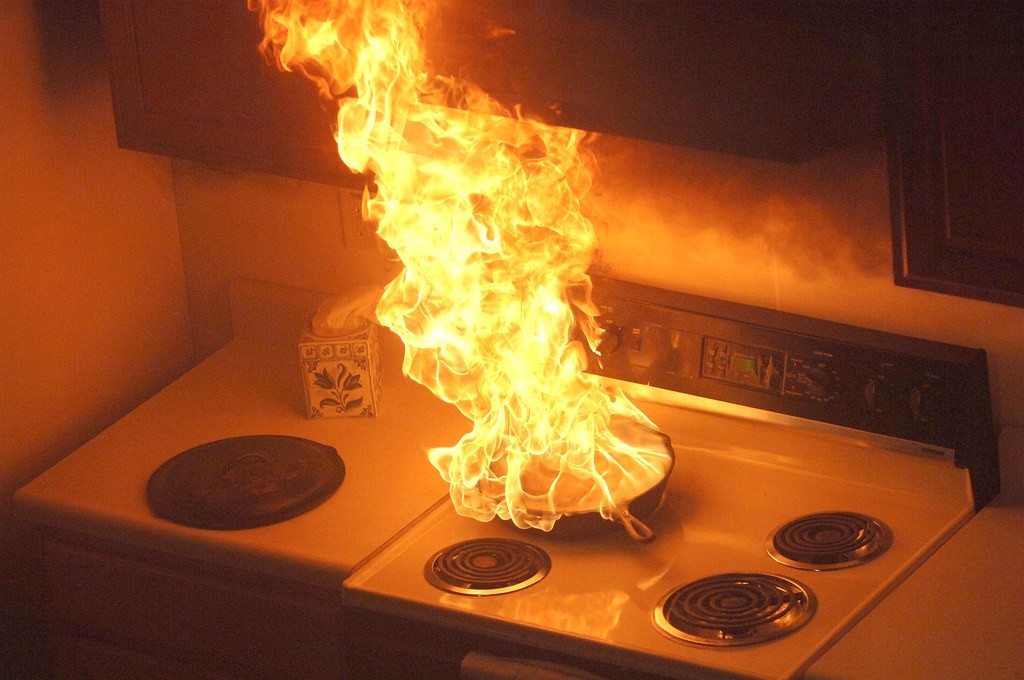Kitchens are one of the most common sources of fire in commercial buildings.
It’s a high-heat environment designed to be well-insulated, helping keep the heat in for cooking. Regardless of size, any commercial kitchen will begin to collect grease. Eventually, this collection of fat creates a problem for your kitchen fire systems.
Nozzles dedicated to spraying your fire suppression agent can become clogged, making the system unreliable and incapable of extinguishing kitchen fires. This is a serious fire hazard and a primary factor for routine kitchen fire system maintenance.
A commercial kitchen is filled with risks and hazards. The damage from a kitchen fire can be significant and the repairs costly. This is why one of the most important components of kitchen maintenance is inspection. But how often do these inspections need to be conducted?
How Often Do Kitchen Fire Systems Need Inspecting?
According to the National Fire Protection Association, your kitchen hood fire system must undergo a bi-annual inspection or once every six months.
A licensed fire protection company must conduct the assessment to ensure that your kitchen fire systems will trigger and successfully suppress the fire. This system must also disable the gas or electric power in your kitchen.
What Occurs During a Standard Fire Inspection?
A routine kitchen hood fire inspection is valuable for several reasons. Not only does it ensure your system adequately works, but your inspector has the opportunity to replace any defective parts. By the end of the inspection, inspectors will confirm that your kitchen fire systems meet all fire code requirements.
Some of the typical duties a professional inspector will complete during your kitchen inspection include:
- Inspecting nozzles for buildup
- Discharging the nozzles to ensure they work
- Replacing nozzle caps
- Blowing out extinguishing lines to ensure nothing is blocked
- Pulling the manual alarm station to verify it’s functioning correctly
- Checking pressure gauges to confirm they meet the proper PSI
- Testing the microswitch and gas shut-off valve
- Ensuring all fans are working correctly and all system elements are compatible
- Checking for holes in the kitchen hoods
- Ensuring the proper cartridges are being used
- Checking that gas and electric shut off when the system activates
The inspector will also install new fusible links containing the current date to prove that your inspection has been completed. Upon completion, you can file your inspection certification with the local fire management office.
The local fire department will receive the same Commercial Cooking System Service and Inspection report that you do, which will contain detailed information regarding your inspection.
Preparing for Your Inspection
You can do a few things to ensure your inspection goes as smoothly as possible.
Complete a monthly assessment to check for visible damage or grease buildup forming in your ducts or kitchen hood. Verify that the system hasn’t been tampered with and that all gauges read the appropriate pressure. You can also ensure any manual fire alarms are not blocked by equipment.
Although you should be cleaning regularly, preparing for your inspection is an ideal time to deep clean the entire system. Remove any buildup that could impact the inspector’s ability to complete a thorough inspection.
Because you cannot use the kitchen during the inspection, scheduling your appointment on an off day or during off-hours is best. Your fire alarm will be temporarily disabled so your inspector can complete the assessment.
The Importance of Getting an Inspection
Your kitchen fire system is designed to save lives, and it will, as long as it’s properly working. It will also prevent downtime for your business as you recuperate from the damage. Scheduling a routine kitchen fire system inspection can be the best defence against fire for your building, employees, and yourself.

